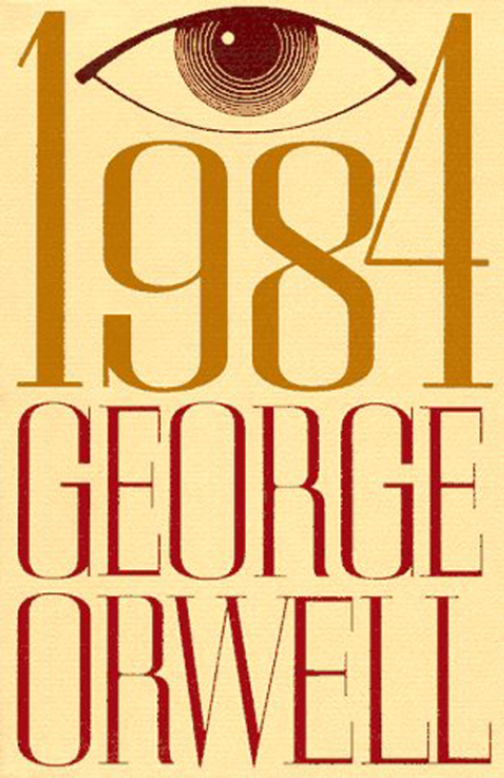By Nikitha Kamath
“Who controls the past controls the future. Who controls the present controls the past.”
-George Orwell
Can you imagine absolutely everything being controlled by the government, including your thoughts, beliefs, and even memories? Well, such is the society created by George Orwell in his novel 1984. Contrary to the title, the novel was actually written in 1949 and portrays Orwell’s disturbing prediction for the future. An excellent example of negative-utopia, this novel will keep you captivated and will force your imagination to wander off to the unseen, undesirable future.
Quite surprisingly, I had never heard of this particular novel until I chanced upon an article about it on social media. As I began to read the book, I started understanding why people liked it. Lack of optimism and happiness doesn’t make a difference when the writing is brilliant, and this is the case with Orwell’s 1984. Sometimes when I read books set in the future, I am shocked by the accuracy of certain predictions as well as terrified by them. With the progression of the story, I could find many connections with today’s society which made me wonder whether that was how our society would ultimately turn out to be. For example, the idea which intrigued me the most was that of ‘Newspeak’, a simplified form of the English language with very limited vocabulary and grammar restrictions including words like ‘doublethink’ and ‘crimestop’. Isn’t this similar to the short forms and abbreviations we use in our daily lives? Perhaps we are unknowingly a step closer to the future predicted by the author.
Another idea which I found fascinating was that of the ‘Thought Police’. The most terrifying type of law enforcement, and a bastion of the authoritarian government of 1984, they rely on near mind-reading techniques, and reports from other citizens to crush dissent in the most brutal of fashions.
Apart from these concepts, there was a specific part of this book that really made an impression on me, and that was when the workings of the entire society was described. As a person with close to no interest in politics, I found myself thoroughly interested in that particular part. I am always amazed by how authors create a whole new society, a whole new world, distinct from our own. This book just increased my respect for the authors who are able to visualize and put their thoughts into words so that we can be a part of their wonderful journey too.
While I liked most of the book, I have to admit that I couldn’t make sense of some parts of it.
It is a story with multiple layers and complex ideas and so it definitely requires a second read, at least from my part. In addition, it was one of my slowest reads as this genre was out of my comfort zone and I had never read anything like it before. I also wouldn’t say that it had the strongest narration or character development, but I suppose that wasn’t the point of the novel. Like I mentioned before, politics doesn’t interest me very much and that factored into why I didn’t enjoy it as much as some others. As 1984 is heavy-handed on the political aspects of the society, I would recommend the novel to someone really interested in it as it provides a whole new perspective of the government and its role.
But on the whole, George Orwell’s 1984 is a classic, and for a good reason too. Irrespective of the age you read this book at, one word is sufficient to describe it – frightfully impactful.

